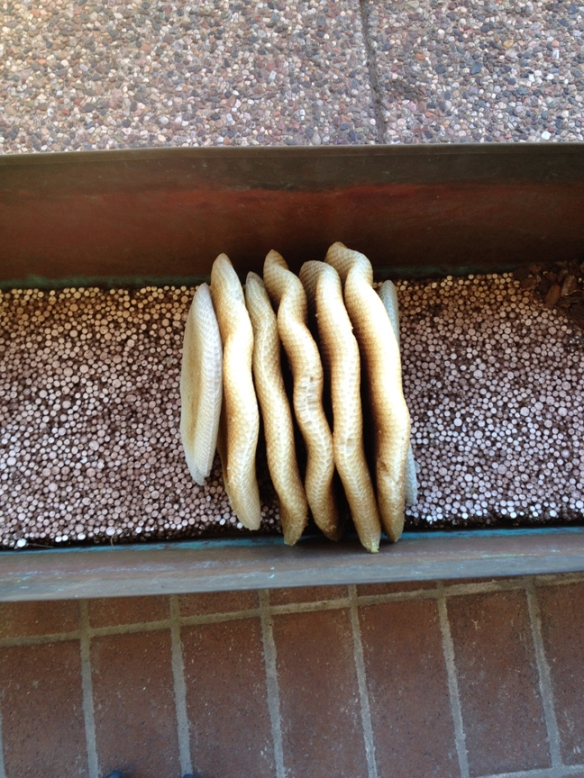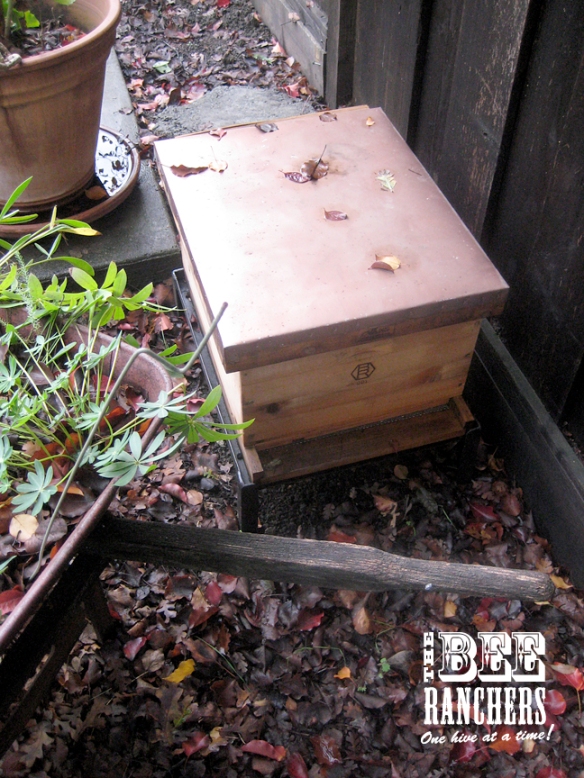In this day and age when most of us think about how fast and cost effective we handle certain obstacles that confront us, it is refreshing to know that some people and businesses overcome barriers the right way instead of the most cost effective way.
Case in point, Swift Real Estate Partners of San Francisco.
I was contacted by SREP to help them with a feral colony of honeybees that had made their home in the 3rd floor planter box at one of their buildings they own in Concord. They didn’t mind the bees necessarily, but on windy days the bee’s flight pattern would end up closer to the sidewalk and entrance of the building to the point that they were becoming a nuisance to visitors and tenants entering the front doors. SREP could have very easily dealt with the honeybees by poisoning the bees and leaving it at that. Instead, they hired the Bee Ranchers to come out and remove the bees, re-hive them in a Bee Ranchers bee hive kit, re-locate them to another location on their property and have the Bee Ranchers manage the colony!
A couple of weeks ago I went out to the site to meet up with SREP who had gone to the expense of renting a lift so that I could get up to the 3rd floor planter and remove the bees. Once I was lifted up to the planter to begin the removal process I discovered the bees had absconded their hive. After removing the planters to get to the empty comb it looks as if these bees left due to lack of food stores. The comb was beautiful and the bees had attached it to the underside of the planter boxes in the void underneath the planters.
Although we were not successful and end up with bees, we did clean up the site, we discussed ways to prevent bees from coming back and the Bee Ranchers was able to educate a few more people on honeybees and why they are so vital to preserve.
I tip my hat to Swift Real Estate Partners for going the extra mile to help out our friend the honeybee.
All photos courtesy of Swift Real Estate Partners.













